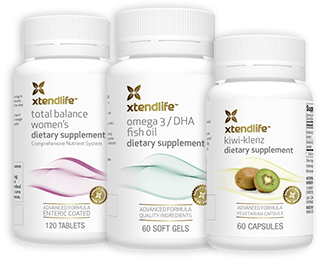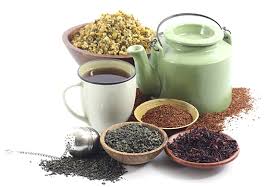7 Powerful Herbs For the Common Cold
The common cold is actually quite impressive when you think about all the discoveries and treatments in modern medicine, none of which have been able to effectively prevent a widespread illness every winter season.
Unfortunately, the germs and bacteria responsible for transferring colds between people mutates at an alarming rate, making the search for a cure an impossible task. If an anti-viral medication is discovered for the common cold, it would only be effective for a short amount of time before the illness mutates and becomes resistant again. Even conventional over-the-counter drugs can only alleviate the symptoms while leaving the cold strain intact.
If you’re looking for some quick relief from your dry coughs or horrible amounts of mucus buildup, store bought brands are an effective treatment. However, if you’re in the market for some natural herbal remedies that have been used for centuries to combat cold and flu symptoms, you may find yourself overwhelmed by the choices.
Luckily for you, each natural cure has its own specific uses so you can decide which ones you need depending on your symptoms. Here are seven powerful cold remedies for all sorts of ailments:
1. Lemon Balm
A naturally sweet herb known for its anti-viral properties and pleasant taste, lemon balm is used for patients already exhibiting cold or flu symptoms. In addition to eating away at foreign germs inside your body, lemon balm can be used to reduce sore throats and dry coughs so you can get a good night’s sleep. Look for recipes that combine this sweet herb with steeped teas and refreshing sodas for an aromatic and tasty substitute to cold medicine.
2. Echinacea
While studies have been mixed on the exact benefits of this herb for the common cold, people have claimed echinacea boosts your immune system and generates more white blood cells in your body. White blood cells are your body’s soldiers in the fight against invading germs. More production means a stronger body.
3. Slippery Elm
Although technically the bark of a tree, slippery elm is useful for clearing up blocked nasal passages suffering from an overproduction of mucus. It’s also pretty useful for relieving sore throats and stomach pains, but eating some tree bark is a tough sell for most patients. Try mixing the fluffy strands of slippery elm into warm cereal or oatmeal to mask the sight. You may not love eating it, but you can’t argue with the ability to breathe through your nose again.
4. Astragalus
Known for centuries in China as a natural immune booster, taking astragalus every day is a good way to strengthen your body to prevent cold and flu symptoms. By improving your body’s natural reactions to foreign germs and viruses, you can experience the winter season without falling ill or recover faster when you do catch a cold. It’s probably best to mix astragalus into a sweet drink to mask the bitter flavor.
5. Mullein
Useful for clearing congestion during a cold or flu, mullein is another great herb for helping you breathe better. While not great at preventing a cold, you’ll be glad it’s around when you’re constantly dry coughing without relief. Turn mullein into a tea by using boiling water and a coffee filter to prevent the tiny hairs on its flowers from making it into your drink. Also, use something naturally sweet instead of sugar to help dilute its bitter taste.
6. Elderberry
They’re tasty berries with tons of anti-viral and anti-bacterial chemicals. This is undoubtedly a natural remedy for soothing cold and flu symptoms that no one will object to because of its naturally sweet taste. Elderberries are excellent at preventing the cold virus inside your body from rapidly multiplying, which gives your immune system enough time to attack the invading bodies and destroy them quickly.
7. Sage
One of the most commonly used herbs for a variety of purposes; you should be interested in sage for its ability to soothe sore throats and dry coughs. It’s also a strong daily herb for boosting your immune system from other illnesses besides the cold and flu. As an jack-of-all trades kind of herb, you should always have some sage around throughout every season to alleviate multiple sicknesses.
Most of these herbs can be found in conventional over-the-counter medications, albeit in lower doses. They’ve been known for centuries in Native American and Chinese cultures to combat cold and flu symptoms.
You should also consider how you want these herbs administered because there are a variety of ways to receive their benefits including delicious homemade sodas, steeped teas, crushed into syrups, cooked for meals, and even mashed into essential oils.
If your loved one is a young child, it’s generally easier to mask some of the bitterness of these herbs with other sweeteners so they don’t know they’re taking them.
For teenagers and older adults, it’s best to take these as daily supplements throughout the season to help boost your immune system and prevent colds from happening. Also, don’t dismiss the over-the-counter drugs or herbs if you happen to favor one over the other. You can take both to help you recover faster; just be aware of how much you’re taking and be sure to read labels on the recommended daily doses.
When these helpful tips in mind, you’ll be cold and flu free... at least until the next winter season arrives!
Read more about herbs for the common cold on our health conditions page or return to the HSG home
Resources...
Search our site...
PREMIUM SUPPLEMENTS
The most advanced herbal supplements on the market
BULK HERBS AND TEAS
Need bulk herbs, teas, supplements and capsules?

